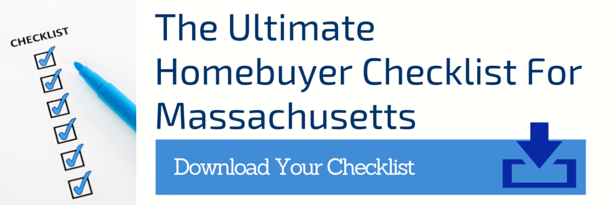This current Massachusetts real estate market has seen a significant increase in demand in home buyers looking to purchase over the past year. At the same time the number of homeowners willing to sell has plummeted, causing a dramatic decrease in inventory.
 Many factors play a role in the condition of any real estate market, including, but not limited to, the economy, interest rates and employment; however, the most important factor is supply vs. demand.
Many factors play a role in the condition of any real estate market, including, but not limited to, the economy, interest rates and employment; however, the most important factor is supply vs. demand.
Since around the beginning of 2012, comparatively speaking, there have been a lot more home buyers, especially first-time home buyers, looking to purchase than there have been decent, well-priced homes to buy in the Greater Boston Area. The tight real estate market has resulted not just in an increase in the median purchase price, but in a lot of multiple-offer situations.
Around Greater Boston, it has not been uncommon for a well-priced home to have multiple offers within the first few days after a property hits the market. In a multiple-offer situation, many times the seller will request that each buyer submit their highest and best offer, and then the seller will choose the offer with the best overall price, terms and conditions. Other times a home buyer only will get one shot at making the best offer.
A home buyer should always speak with their buyer agent about how to submit the most appealing offer possible, taking into account all the terms and conditions of the offer, but as even a first-time home buyer can surmise, typically the most important factor is price. Sure, flexibility as to the closing date and other terms come into play, but the offer price holds the most weight. Home buyers should think twice before waiving important contingencies.
Unless the seller is engaging in a bidding war, where the Seller and multiple home buyers go back and forth with each home buyer bidding up the price against one another – which is actually not very common – a home buyer in a multiple offer situation essentially has to guess what the highest bid might be for a property and make a decision on whether they want to offer higher than that price.
There are two drawbacks on this process for home buyers. First, a home buyer could end up paying substantially more than any other home buyer, if they misread the demand for the property. Second, if a home buyer bids too conservatively (not wanting to bid too much higher than another home buyer), they could lose out on a home when another buyer outbids them, even in circumstances where they would have paid more had they known about the other higher offer. Many times home buyers that are outbid are surprised after the property closes to find out that just a few thousand dollars more would have made the difference.
Some home home buyers, through their buyer agents, have turned to “escalation clauses” in order to minimize the chance of overpaying in a multiple offer situation and potentially increasing the likelihood of getting an accepted offer.
How does an escalation clause work?
• Home buyer submits an offer for a Property for a certain price.
• In the offer, there is an escalation clause that states that home buyer will pay X amount more than another bona fide offer [the escalation clause will often define what qualifies as an bona fide, or acceptable offer] in the event that seller receives a higher offer.
• There is usually a price cap that states the ceiling in which the home buyer's offer can be escalated to.
• If the seller does accept the home buyer's offer using the escalation clause, typically there is language in the escalation clause that requires the Seller to attach or show proof of the other valid offer.
• If the Buyer’s offer was the highest price to begin with, as always, the Seller can accept that price, reject it, or counter-offer, but the escalation clause would be irrelevant.
 Here’s an example: 10 Main Street, Anytown, MA comes on the market for $550,000. Bonnie Buyer submits an offer for $530,000. Bonnie’s buyer agent contacts the seller’s agent who informs him/her that the seller has multiple offers and that all offers are due the next day by 10 am.
Here’s an example: 10 Main Street, Anytown, MA comes on the market for $550,000. Bonnie Buyer submits an offer for $530,000. Bonnie’s buyer agent contacts the seller’s agent who informs him/her that the seller has multiple offers and that all offers are due the next day by 10 am.
Bonnie Buyer increases her offer to $540,000 with the following escalation clause: "In the event of multiple offers, BUYER hereby agrees to offer $5,000.00 more than the highest, written bona fide offer, net of concessions, not to exceed $580,000, which can be accepted by SELLER by signing this Offer and attaching said highest additional offer. Accepting this Offer without attaching an additional higher offer shall be an acceptance on the purchase price stated herein."
The seller receives three offers: Bonnie’s offer for $5400,000, Cameron’s for $535,000 and Dana’s for $555,000.
A wise seller will certainly take into account all the terms and conditions of each offer [dates and deadlines of home inspections, signing of purchase and sale agreement, mortgage financing, closing, amount of deposits, etc.]; however, assuming that each offer had substantially similar other features, the seller would choose between Bonnie and Dana.
The Seller could either choose Dana’s offer of $555,000, or could accept Bonnie’s offer with the escalator up to $560,000.
Using the same example, but with Dana’s offer at $582,000. Seller could choose Dana’s offer of $582,000, but would only be able to escalate Bonnie’s offer up to $580,000 because that was the price ceiling in the escalation clause.
What are benefits of using an escalation clause?
• The home buyer can submit an offer that isn’t necessarily their highest and best offer, which reduces the risk that they are paying substantially more than the second highest bid.
• By using an escalation clause with a price ceiling, it sets the highest price that they would be willing to pay, making a home buyer feel comfortable that they have offered the most they were willing to pay for the home.
What are the risks to using an escalation clause?
• Using the most simply-worded escalation clause (like the one above) does not take into account other factors in the offer to purchase; e.g. mortgage financing contingencies are often based on a certain percentage of the purchase price – if a seller accepts an offer with an escalation clause, does that also escalate the mortgage financing contingency? If it does not, the home buyer is not protected as well as (s)he could have been.
• On the other hand, the more complicated the escalation clause, the more confusing it might be, which might cause the seller to be hesitant about considering an offer with an escalation clause. This likely will depend substantially on how well the seller has the escalation clause explained to her or him. Obviously, that will vary greatly from seller agent to seller agent.
• In multiple offer situations in which there is more than one offer that has an escalation clause, it is extremely difficult for a seller to compare/contrast those offers. If there are many very strong offers – as there often are the Greater Boston Area real estate market currently – a seller might just ignore offers with escalation clauses and focus on the more straight forward offers.
• Privacy is an issue with escalation clauses. Most escalation clauses have language that requires the seller/seller agent to show the home buyer proof of the higher bona fide offer. There’s arguably no confidentiality when a home buyer submits an offer to purchase for a property, but at the same time, it certainly is not expected that a home buyer’s offer actually would be attached and incorporated into another party’s transaction. Uncertainly and hesitation on this issue might cause a seller to not consider an offer with an escalation clause. On the other hand, a seller could potentially just use the ceiling price in an escalation clause to show other home buyers what they will have to bid in order to have the best offer.
• The concept of the escalation clause in general might be off-putting to a seller who hasn't had the escalation clause properly explained to her or him. Using the example above, the seller might think, "If Bonnie is willing to pay up to $410,000, why didn’t she just offer that as a highest and best offer?" In fact, a seller could just say s/he is ignoring the escalation clause and is willing to accept $410,000 (the price ceiling), thus negating the benefits of the escalation clause all together. The buyer would then have to decide whether or not to just pay the higher amount without knowing how much other buyers offered.
The bottom line is that an escalation clause can be a helpful negotiation tool in certain situations, but Massachusetts home buyers need to be aware of the risks, especially the risk of announcing their highest and best offer price without actually making that offer.
Finally, the price a home buyer is willing to pay for a home should be based on the value of a home. Getting caught up in a bidding frenzy may result in paying more for a property than one should have paid under their particular circumstances. An experienced, dedicated buyer agent can help explain to a home buyer the pros and cons in any situation and walk a home buyer through the possible outcomes.
The information on this Web site is not legal advice, but for informational purposes only. Please read the full disclaimer.






